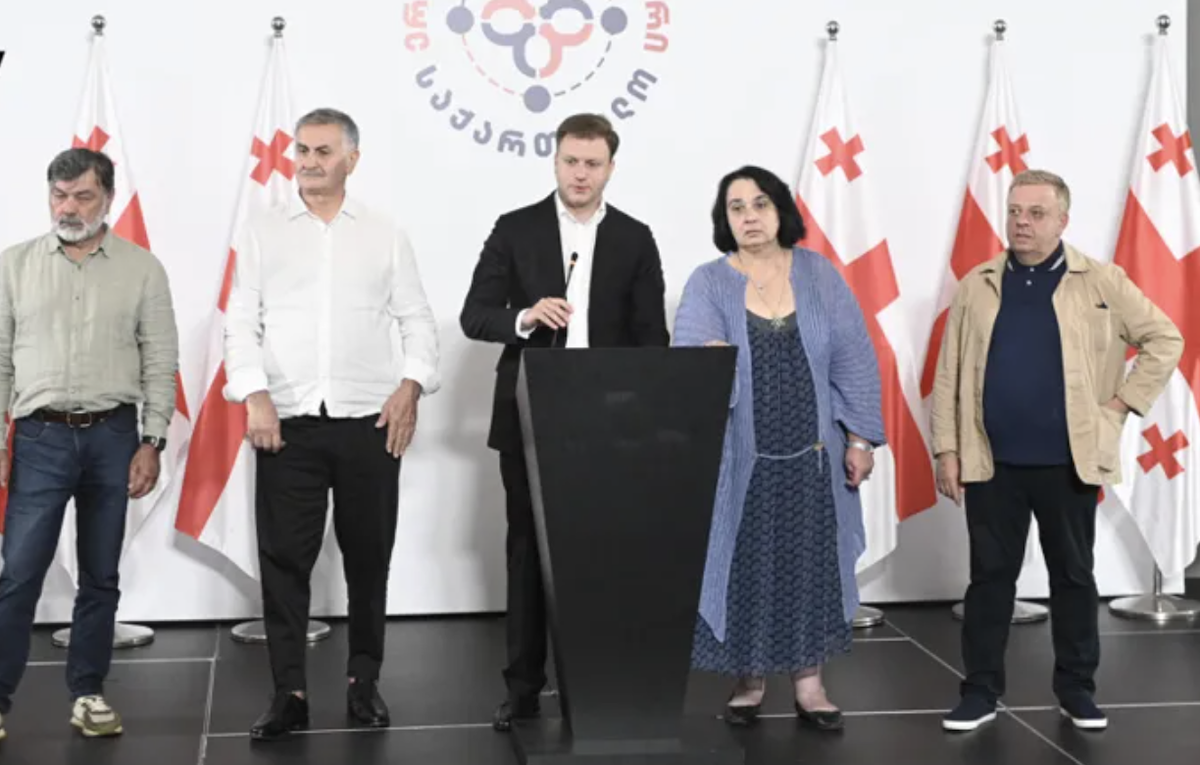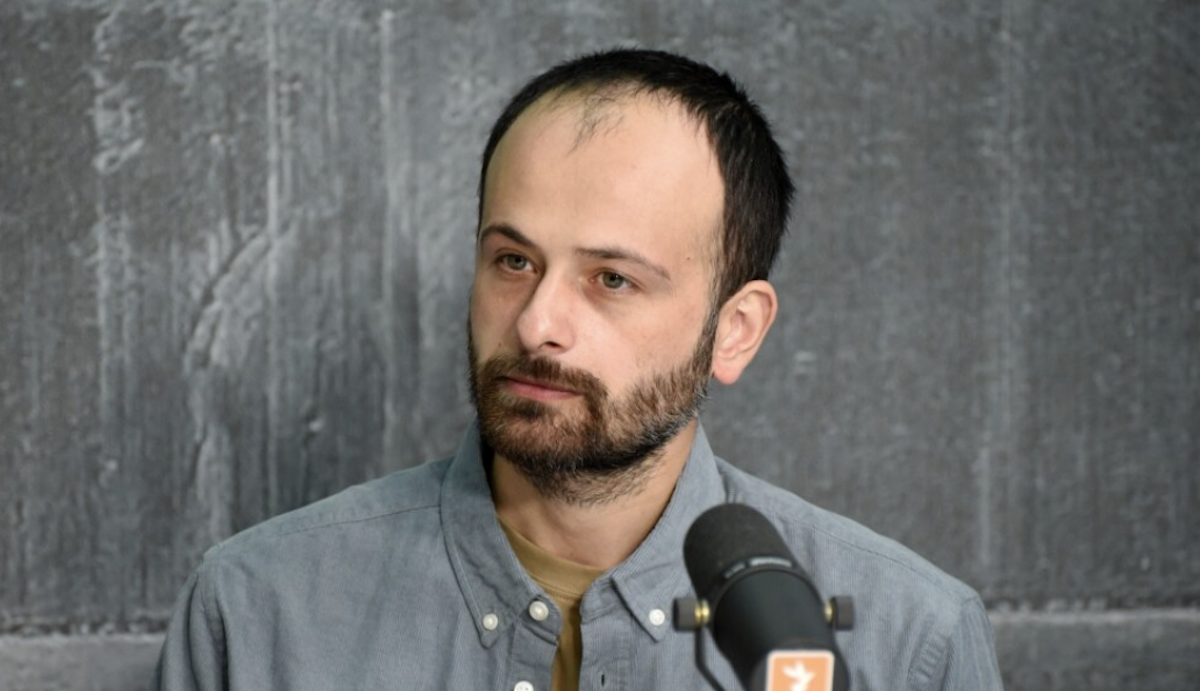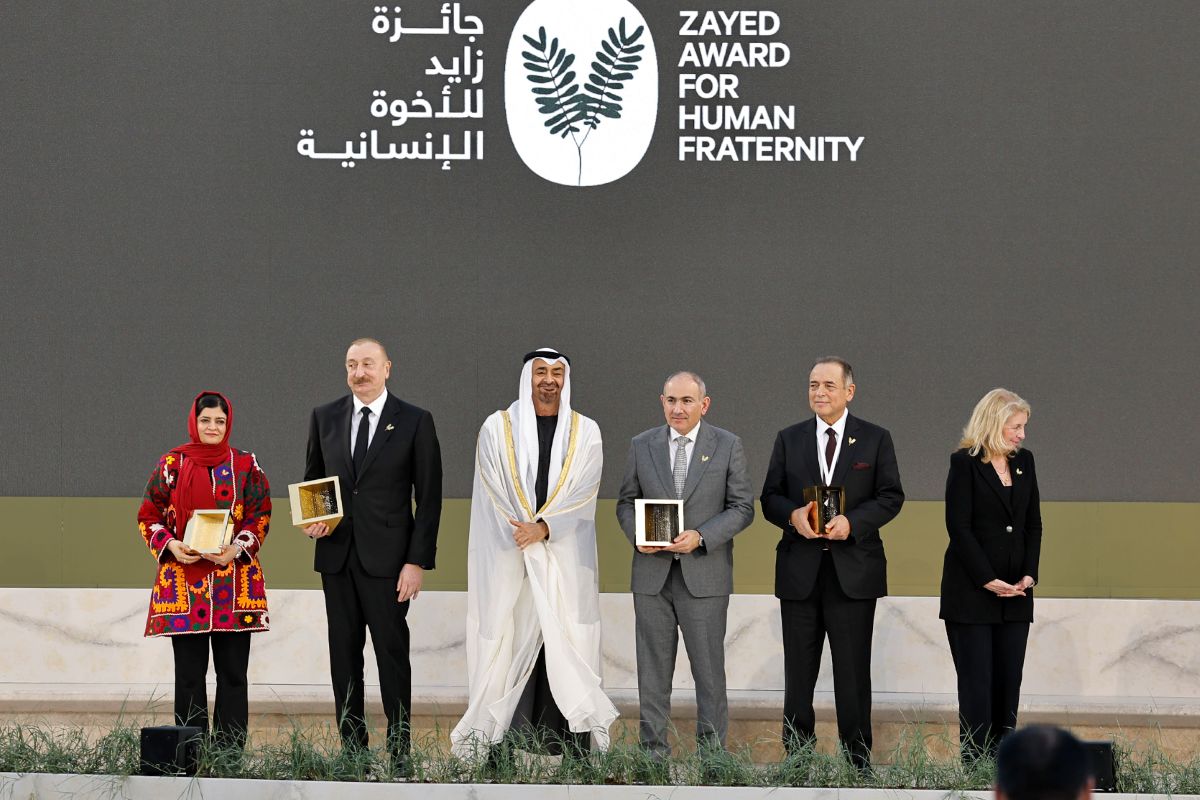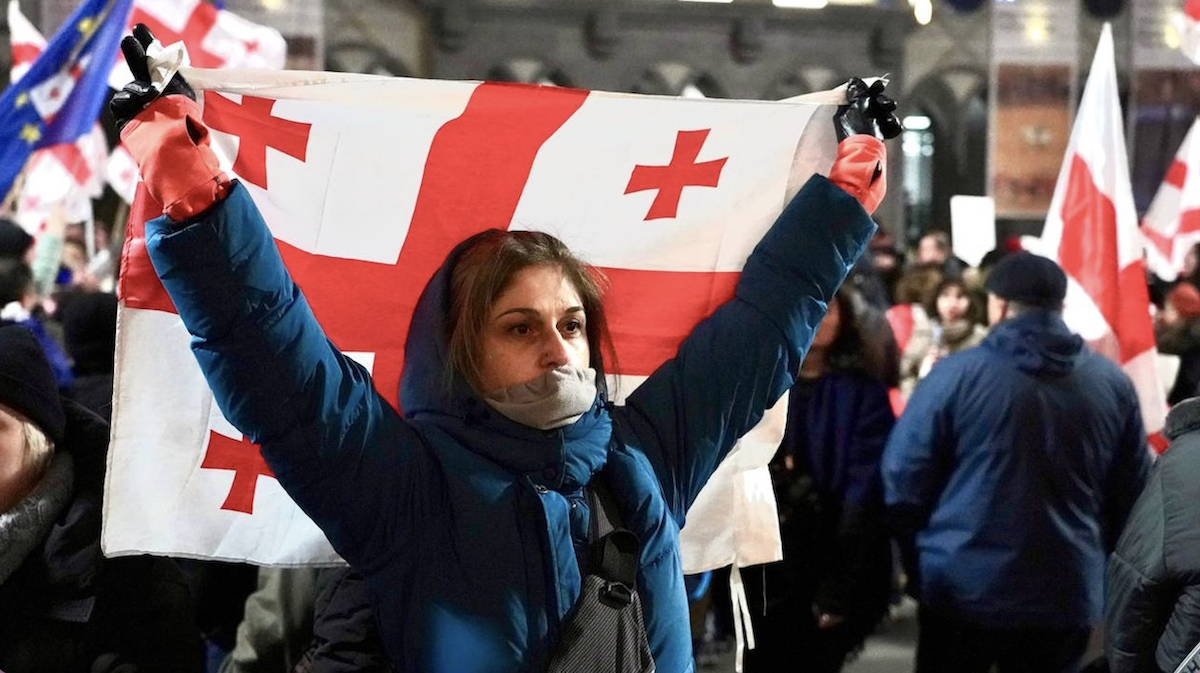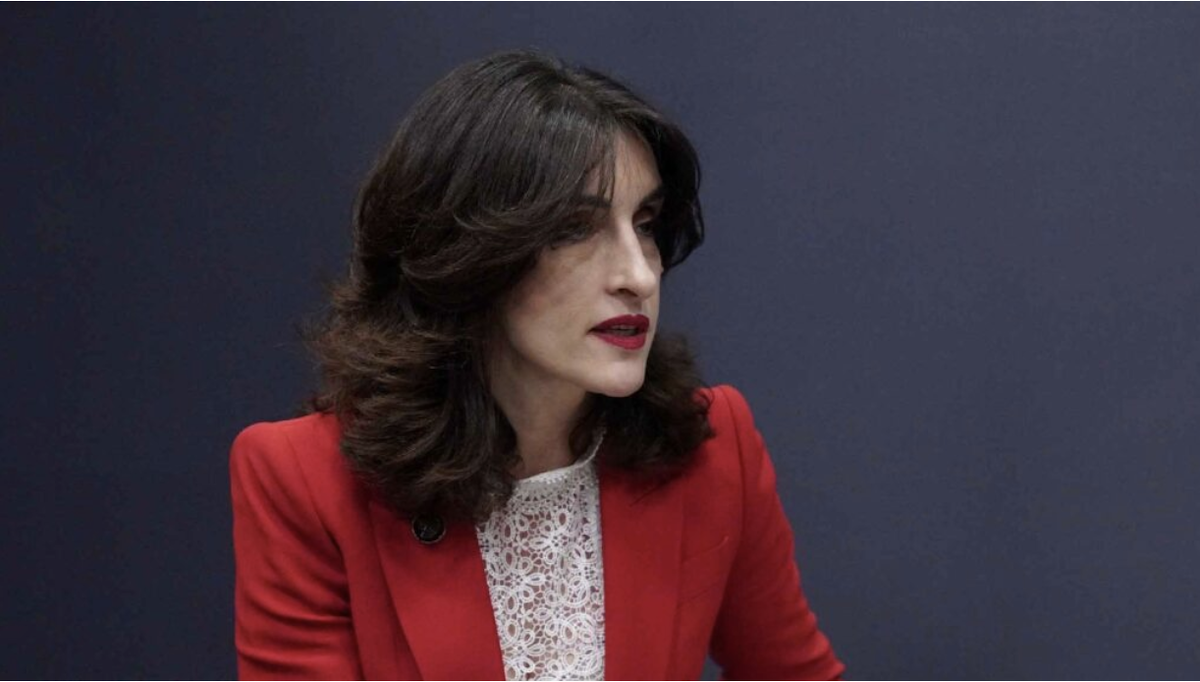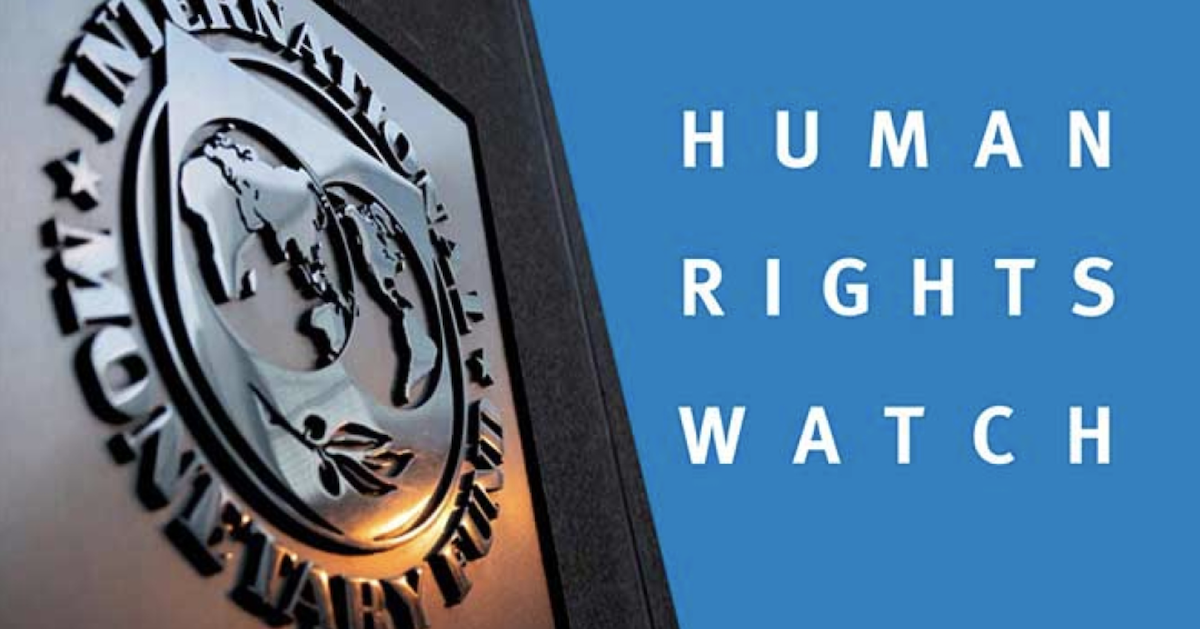"I'm wondering when my birthday is." Stories of trafficked children in Georgia
Trafficked children in Georgia
Dozens of people in an open Facebook group are looking for their biological parents. Group members say that in the 1980s and 90s, the practice of stealing healthy babies from maternity hospitals was widespread in Georgia. .
Several such cases have been prosecuted. JAMnews tells several stories with different endings.
On April 17, 1968, late at night in one of the maternity hospitals in Tbilisi, there was almost no staff left when the doctor informed Nunu Kamarauli that her newborn daughter needed an urgent operation and the girl needed to be transferred to a children’s hospital. The mother agreed. And in the morning she was told that the child had died.
The baby’s body was not shown to the family. Young parents were in such shock that they had no time for papers. In addition, the obstetrician-gynecologist was their good friend and took over all the bureaucratic matters.
A year later, Nunu and her husband Zakaria gave birth to a healthy girl, Iya, and eight years later, a boy. All three children were born in the same maternity hospital, with the same obstetrician-gynecologist.
Years passed, and the family avoided talking about that April night. Nobody ever mentioned it.
***
One cold winter evening, already grown-up Iya returned home and found her father in complete disarray.
Zakaria has just watched a program on TV about children who died in maternity hospitals. The lawyer invited to the program said that if many years ago parents in the maternity hospital were told that their newborn child had died, but they did not see the death certificate, then it is very likely that the child is alive, and the parents were victims of fraud.
Iya was also flustered. She knew that she was not the first child in the family.
So maybe the firstborn is alive?
▇ Suspicions intensified after Iya went to the House of Justice and did not find any documents in the archive regarding the allegedly deceased child – neither birth certificate nor death certificate. It was as if her older sister had never even existed.
In the archive, Iya found only a record of her own birth, which stated that she was the first child of her parents.
“Why is it written that I am the first child? After all, the obstetrician, who was a person close to our family, knew that I was not the first-born. The first child simply disappeared from the records. That doesn’t happen.”
So for the first time in 50 years, they started talking about the baby.
“It was only 50 years later that we discovered that all relatives had different versions of when and why the child died. If we had talked about this topic earlier, many questions would have arisen. We believe that the girl was registered with foster parents immediately after birth,” Iya Kvelashvili says.
In the five years that have passed since then, she has made a lot of efforts to find her missing sister, who turned 55 on April 17. But she didn’t find her.
- “When you came to us, you already knew how to eat” – about “in-vitro kids” and adoption
- Children in Georgia. Facts and figures
- Armenia’s adoption fraud: foreigners pay up to 25 thousand euros for a kid
“Looking for parents”, “Looking for a child”
At the same time, in the same city, 31-year-old journalist Tamuna Museridze learned that she was adopted.
“I never had such doubts, despite the fact that once in my childhood a neighbor told me about it, and another time from a friend, but I never paid attention to it.”
A few weeks after her mother’s death, Tamuna accidentally found a second birth certificate with a different registration number at home.
Soon, when she came to the House of Justice to restore her passport, she discovered that her documents did not contain information about her birth at all.
“The documents indicated a completely different maternity hospital, not the one in which, as I thought, I was born. Then I began to remember everyone who had ever said that I was adopted. I started asking family and friends. They all declined to answer. Finally, one of them asked: how did you know? At that time, I was already sure that the receptionist.
Since that day, Tamuna began to look for her biological parents, but so far she only found out that her real name was Sordia. This was found out with the help of a DNA test.
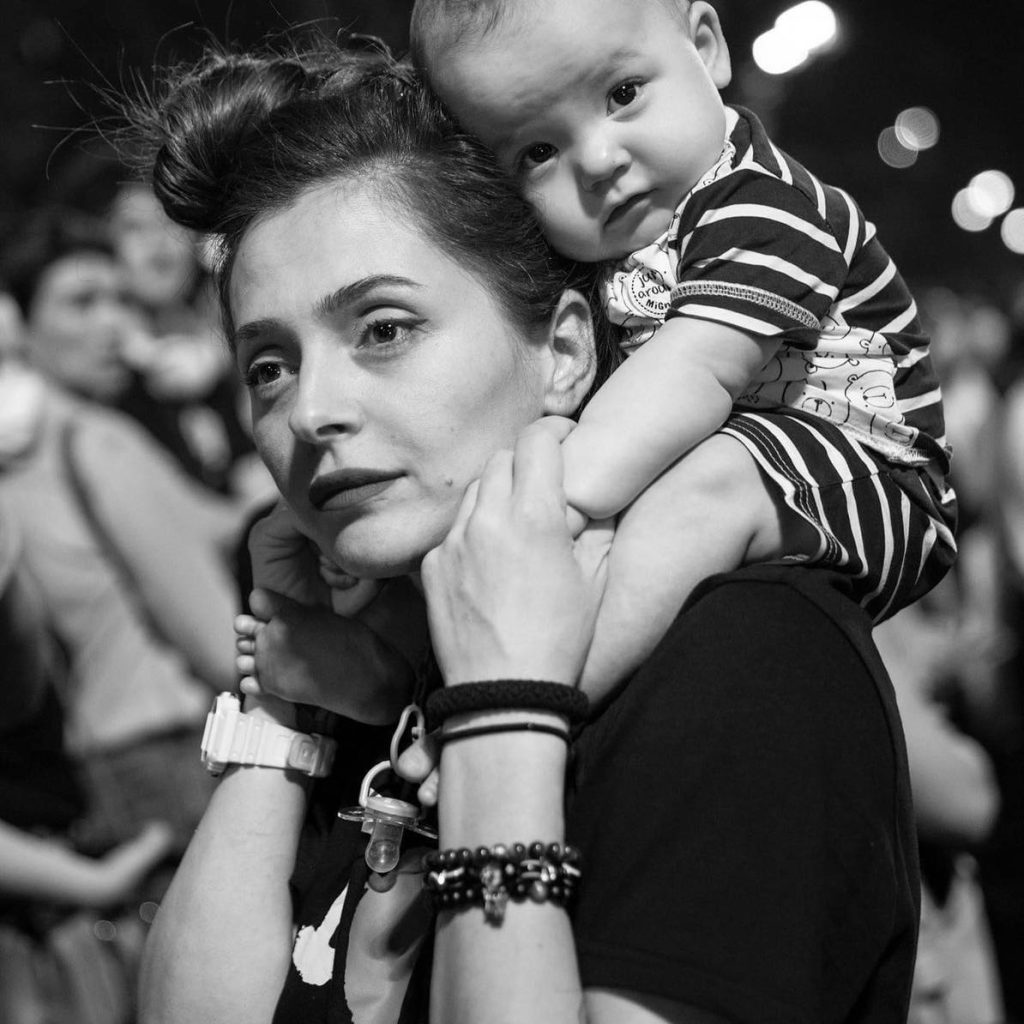
“According to the legislation of Georgia, an adopted child does not have the right to learn information about the place or date of his birth without the permission of the official parents. In addition, there is no institution in Tbilisi where one could apply and receive information about one’s biological origin.”
Although Tamuna found almost nothing, in the process of searching she met many other people with a similar problem, including Iya Kvelashvili. Together they created a Facebook group called “Searching” (“ვეძებ”) for those looking for their biological parents.
And over time, this group acquired acquired a different meaning.
▇ Gradually it became clear that in Georgia there was a huge secret network of doctors who declared newborns dead and then sold them.
“We were once approached by a woman who was looking for her husband’s biological parents, and through our group we found out that her husband was registered as stillborn, but in fact he was sold to foster parents in another city.”
Shortly thereafter, Tamuna was contacted by another woman and told her the secret that her mother had revealed to her before her death.
“Dying, her mother, who worked as an obstetrician-gynecologist in a maternity hospital, confessed how she once hid a newborn, and told the mother of the child that he had died. She begged to show at least the body of the baby, but she was told that he was allegedly cremated. Then that doctor took the hidden child and raised him herself.
Only before her death did she tell her adopted daughter the truth, and at the same time she described in detail the scheme they worked under: how they stole living children, passed them off as stillborn and sold them.
Gradually, more and more such episodes came to light. According to Tamuna, similar stories took place all over Georgia, and many people were involved.
Judging by the stories, such networks operated in Tbilisi and several other cities from 1950 to 2006. During the Soviet period, stolen children were sold here, in Georgia, and after the country gained independence, they began to be sold abroad – to the States, Canada, and Europe.
The scheme was as follows: the baby is declared stillborn, or they say that he needs an emergency operation, and then they say that he did not endure it; parents who are in a state of extreme stress, without reading, sign any paper, thereby actually giving consent to the adoption of their child.
“We even had such a story. They took her mother out, put her in a car and gave her a document about the funeral ceremony to sign. In fact, the child was alive, he was hidden. And in the car there was a man from Canada who wanted to see what kind of mother she was. And she actually signed the paperwork for him to adopt her child.”
One of the largest networks operated in the city of Gurjaani. It was led by Mzia Gelashvili, an employee of the maternity hospital.
“She collected babies from different maternity hospitals and gave them to nannies in Tbilisi to raise them temporarily, and sent photos of the children to America and Canada.
Mzia Gelashvili, together with a certain Marina Napireli, took ID cards from neighbors and registered the children in their name. As a result, the abandonment of the child and consent to adoption were signed not by his biological parents, but by third parties, so no one knows and will never know where these children actually came from, whose they are,” Tamuna Museridze tells us.
In case the family was rich and powerful and insisted on seeing the body of the deceased child with their own eyes and burying it, one of the hospitals even had a “collection” of dead babies. In the refrigerator of the morgue, the bodies of really dead children of different appearance were kept: a fair-haired girl, a fair-haired boy, a dark-haired girl, etc. And if necessary, one of these bodies was given to the family for burial.
According to Tamuna, more than 100,000 children were illegally adopted in Georgia as a result of this complex scheme.
“In relation to the country’s population [about 3.700 million people – JAMnews], these are catastrophic numbers,” says lawyer Liya Mukhashavria, who provides legal assistance to people looking for biological parents.
“Apparently, the sale and purchase and abduction of children, which have existed since time immemorial, have not stopped and are systematic even in our time.”
To date, more than 227,000 people are already members of the Seeking group. They share their stories, ask questions, and then the creators of the group help them in their search.
In the group you can meet a variety of questions: How do I know if I am adopted or not? I gave birth in Guria in 1956 and my child died, is he really alive?! Where can I find out if my documents are fake or real? I am looking for biological parents in Samegrelo – etc.
Through their group, Tamuna and Iya helped reunite nearly 700 families. However, in most cases, finding the biological parents is very difficult because no documentation actually exists.
All the documents that the adoptive parents have are fake.
“The only way out is a genetic test. We don’t have a DNA database in Georgia, so we order a flask from Amazon for $100 and then ship it back to the US to the lab. The result of each person’s analysis is entered into a worldwide database that will be stored for 500 years. After that, the database shows you a list of people who also passed the test and are your blood relatives.
Based on this test, Tamuna found many relatives and found out that her last name was Sordia, but so far she has not been able to find traces of her mother and father.
As a result, the Georgian Ministry of Internal Affairs became interested in the scheme of illegal adoptions. On August 31, 2022, Tamuna Museridze was summoned to the ministry to testify. She spent six hours there and told everything that she and her friends had managed to find out over the past two years.
History of Panagiotis Suruklis
Panagiotis Suruklis, 20, from Cyprus, is also looking for biological parents.
He always knew that he was born in Georgia and was adopted, but before that he did not at all strive to find out his origin.
However, in 2020, when the coronavirus pandemic began and Panagiotis spent a lot of time at home, he thought that if he did not find his biological parents now, then it might be too late, and they would no longer be alive.
“My adoptive parents do not mind, they raised me in love and will always be my parents, I will always be grateful to them. Especially since I thought my biological parents had abandoned me and got mad at them.”
▇ I was wondering how old I really am, when my birthday is and who I am according to the horoscope. So I started searching.
The adoptive mother of Panagiotis submitted the adoption papers without objection. A good friend who works at the Georgian Embassy in Cyprus took these documents and promised to easily find her parents in the database.
However, she did not succeed. The information available about Panagiotis refers only to the period after his adoption. At that time, the boy was one and a half years old. And until then, according to the documents, Panaitios did not exist at all.
“I was very depressed. I didn’t want to talk to anyone, I wanted to be alone. The parents were upset too.
Then Panagiotis found out about the group on Facebook and joined it.
“For almost a year I did not publish anything there, I was afraid to share my story. Finally, I wrote to Tamuna privately and she made a public post. And we started looking for my biological parents.”
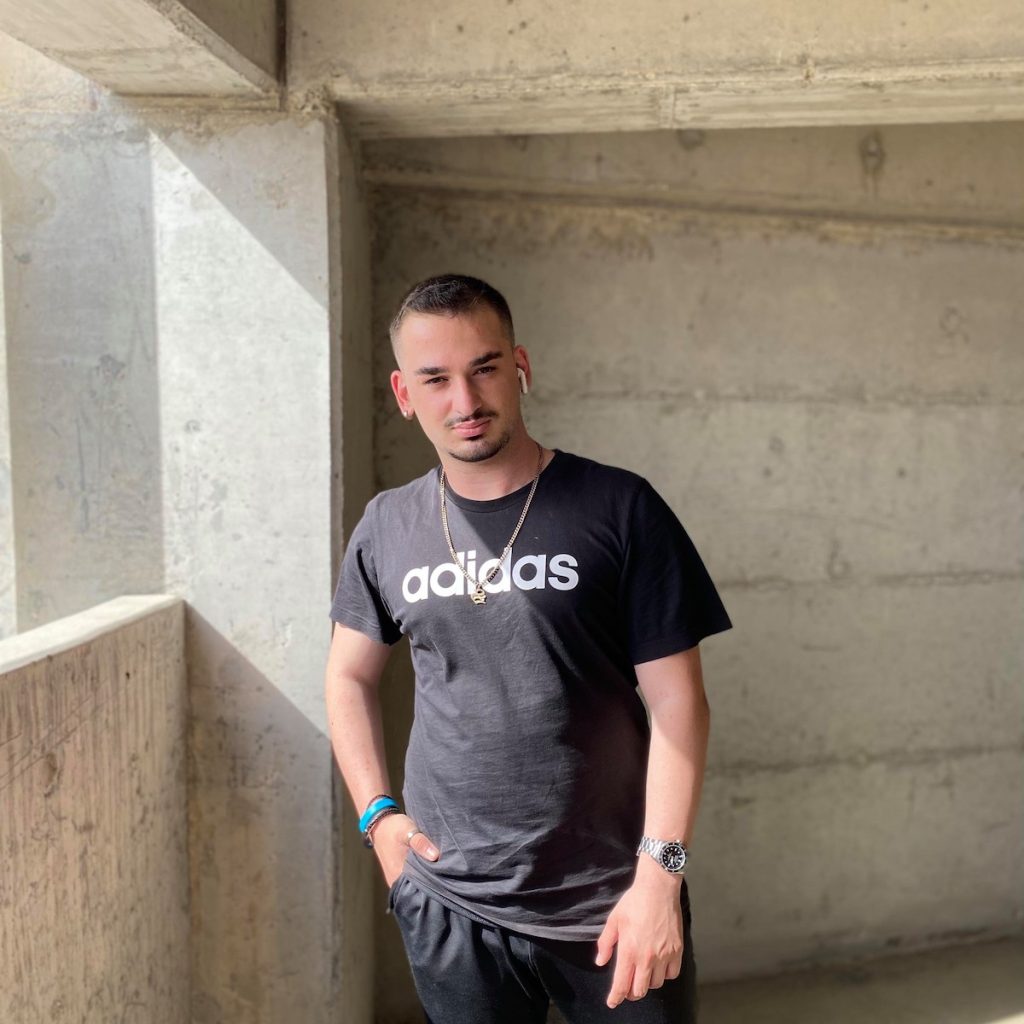
Panagiotis did a genetic test and found several suitable families. He came to Georgia and met several of them, although his blood relationship was not fully confirmed with any of them.
“According to the information we have, I lived with a nanny for a year before I was adopted. The nanny died, and Shota and Nona Rukhadze, who actually never existed, are officially recorded as my parents. My papers are all fake.”
Through Tamuna, Panagiotis handed over these documents to the Ministry of Internal Affairs in the hope that the state would investigate the case. However, no response has yet been received from the ministry.
“About seven months ago, I handed over the documents of five children to the ministry. The case has been initiated, the investigation is ongoing, but so far no one has contacted us. I understand that it is difficult to investigate a 20-year-old case, but we have first and last names, addresses, telephone numbers. In Spain, a similar scheme also operated, this is not our know-how, but there in 1997 the state revealed everything and found 500 children, ”says Tamuna.
“The five cases that Tamuna handed over to the Ministry of Internal Affairs are not so old and complex, they can be investigated,” lawyer Liya Mukhashavria confirms.
“And in other cases, the statute of limitations has already passed and, unfortunately, it is impossible to prosecute the perpetrators of these crimes.”
However, there are stories with a happy ending.
Anna and Taco
A little over two years ago, two girls found each other in Tbilisi.
One day, a friend sent 18-year-old Anna Sartania a photo and asked: is that you?
The girl in the photo had a piercing on her eyebrows. Anna didn’t have that. And her hair color was different.
Then Anna remembered that she had already been told that they saw a girl very similar to her. She even knew that girl’s name was Taco.
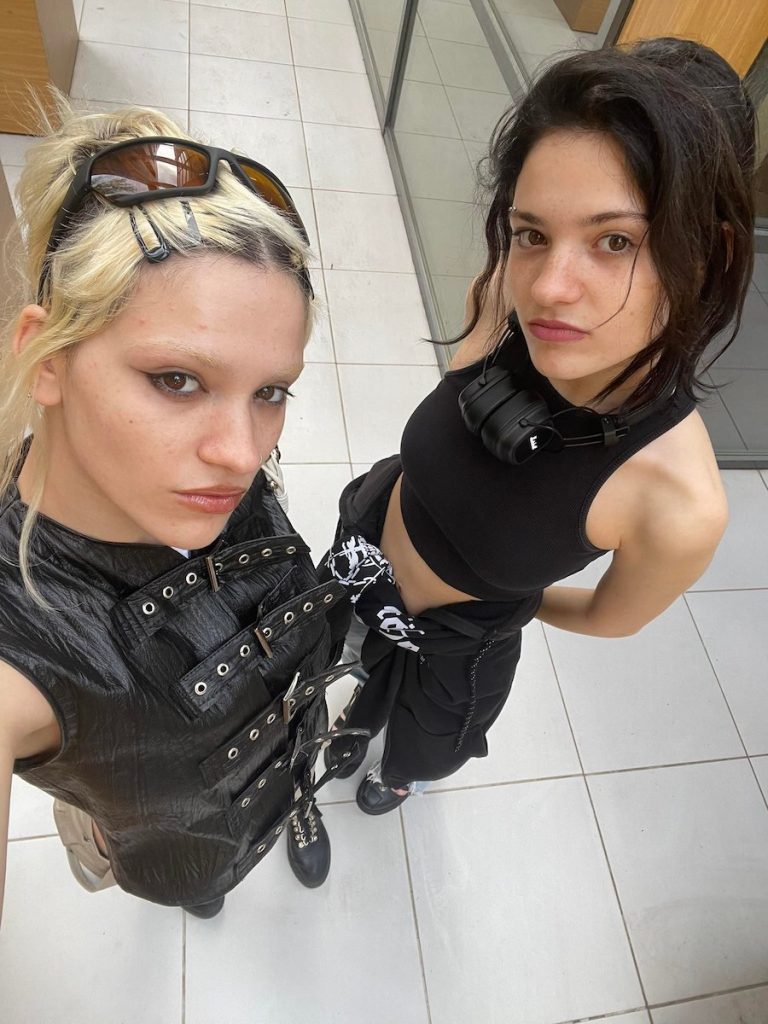
This time, Anna decided to search Taco on Instagram. Searched and searched, but did not find. Then she sent her photo to one of the Facebook groups and asked if anyone knew her. One of the band members turned out to be Tako’s friend.
Anna and Tako contacted each other and began to chat. There were too many coincidences – both were 18 years old, both were born in the summer, both had dysplasia.
They decided to meet. On a rainy day, Anna and her friend were waiting for Tako at the subway exit.
When she stepped off the escalator and removed the medical mask, both girls screamed.
▇ “At first I wanted to run away. It felt like I was looking in a mirror. In front of me was my exact copy. Then we looked at each other again and laughed.”
Taco and Anna didn’t even need to do a DNA test. They were so similar that no one doubted that they were twins.
Tako grew up in Zugdidi, a city in western Georgia. Anna is in Tbilisi. Both had caring and loving families. Anna never once suspected that she was adopted. Moreover, she was very similar to her mother.
But Taco, despite a very happy childhood, always had the feeling that something was wrong.
“Even though I have a wonderful family and grew up in love, I constantly had the feeling that I was not where I should be.”
After getting to know each other better, Anna and Tako began their own investigation. After difficult conversations with their parents, the girls learned that both were adopted.
After 18 years, it turned out that on June 20, 2002, Aza Shonia gave birth to twin girls from Gocha Gakharia in the village of Kirtskhi in Samegrelo, who were separated from each other immediately after birth and adopted by different families.
It was also revealed that Tako and Ana, in addition to each other, have four more brothers and sisters. By the time the twins were born, the biological parents had already separated. And both sides tell different stories about why the twins were left out.
“We were adopted separately, because then each of us was given a higher price.”
With the help of the Seeking group, Ana and Tako eventually found their biological family. A girl who was looking for twins born in 2002, her own sisters, responded to their post.
After a DNA test, almost all the secrets were revealed. But for the twins, the most important thing was finding each other.
“We have a good relationship with our brothers and sisters, but they grew up together and we grew up separately. We are in seventh heaven with happiness that we have found each other and have been together for two years. As for parents, we already have moms and dads who raised us. And we are not interested in relationships with our biological parents.
Aza Shonia, the biological mother of the twins, is now in exile. Tako and Anna haven’t talked to her yet and don’t really want to get to know him.
“We still don’t really know what happened – who gave birth to us, who sold us, who took part in all this. We are very outraged by this whole story. Twins cannot be separated, they are one. It’s amazing how we’ve lived without each other so far.”
Hunter Philips aka Gocha Gamsakhurdia
On one of the usual January nights, 59-year-old Georgian Manana Alpenidze, who lives in exile in Italy, received a strange message on Facebook: “Mrs. Manana, your son is looking for you.”
The woman did not understand what it was about – after all, she spoke with her son quite recently.
“Not the eldest son, the second is looking for you,” they wrote.
“I replied that I have one child, and they confused me with someone. I was asked how many times have you given birth? I said: twice, but one child died. And suddenly the answer comes: your child is not dead. He is alive, lives in America and is looking for you.
When I came to, I stood up in bed and talked like that. I still get nervous when I think about it. I couldn’t believe what they were telling me. Soon they sent me a photo of him when he was little – he looked like his older brother like the other half of an apple.”
In 1995, Manana Alpenidze gave birth to her second boy in Tbilisi. And on the third day, a doctor came to her and said that the child urgently needed an operation. Manana agreed.
▇ The child was taken away. Soon the midwife returned and reported that the baby had died. Manana could not believe it for a long time. She cried, begged the doctors to show her her son’s body.
She was told to bring clothes in which the child would be buried. And they showed him from afar, behind glass.
“I was told that they have their own cemetery here and if you pay, they will take care of everything themselves. My husband had gone to the countryside. Mom and I were confused and agreed, we didn’t know what to do.”
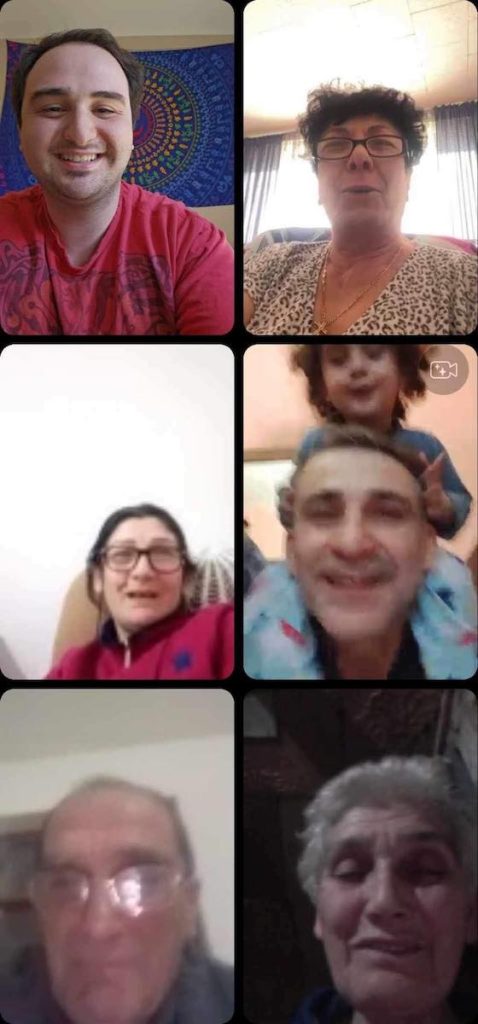
Manana paid the doctors and signed an agreement for the burial of her son in the cemetery at the maternity hospital.
“I felt very bad, a living hell. But my eldest son was then 10 years old, and he helped me to live on.”
Many years later, Hunter Phillips, who lives in the US state of Virginia, decided to find his biological parents. He always knew that he was adopted from Georgia.
“I was told that my mother was very young when she gave birth to me. And that I had some kind of congenital problem, and my mother decided to give me up for adoption, because she could not take care of me herself.”
Hunter did a DNA test, but found only a few potential cousins in the database. He contacted one of them, and he told him about the group “Search”.
Hunter was lucky – the name, surname and address of the biological mother in his documents were not changed. Within 24 hours after writing the post, his mother, 59-year-old Manana Alpenidze, was found in Italy.
“When we first called, I was skeptical, still not particularly hoping that this was my real biological family. We turned on the cameras, we saw each other, and everyone started crying.”
It turned out that after Manana was informed that her newborn son had died, the child was taken to Moscow, where five weeks later an American couple legally adopted him.
“My story has a really happy ending. I don’t even want to imagine where I would have ended up in Moscow in the 9190s if my parents hadn’t adopted me. And now I have two big loving families.”
“Mother and brother Koba do not know English. Their relative sometimes helps us communicate. My older brother is an extraordinary person, very loving. He sometimes sends me voice messages in Georgian – I don’t understand a word. And he thinks that since I am his brother and Georgian, I will understand.”
Hunter – born Gocha Gamsakhurdia – will arrive in Georgia in September with his foster mother. Manana will fly in from Italy and the extended family will meet each other for the first time.
These stories ended happily, although tens of thousands of people adopted for money are still looking for their biological parents. And parents are dead children who are actually alive.
“The business that Tamuna started is a real revolution in modern history. The state must respond to this. First of all, the law should be changed and the limitation period should be extended in such cases. If the people who did all this do not answer for their crimes, there are no guarantees that this will not happen again,” said lawyer Liya Mukhashavria.
“Fortunately, since 2006, a child is assigned a personal number at birth, and documentation is strictly controlled. After 2006, I have not heard of such cases. But this does nothing for those 100,000 children who were adopted many years ago,” says Tamuna Museridze.
“When we created this group, I had no idea that I would stumble upon this. Now my main goal is to reunite as many people as possible and, most importantly, to change the adoption law.
Everyone has the right to know when his birthday is.”
Trafficked children in Georgia











